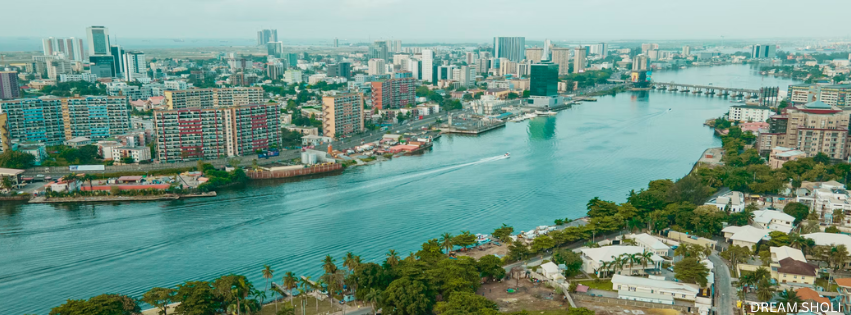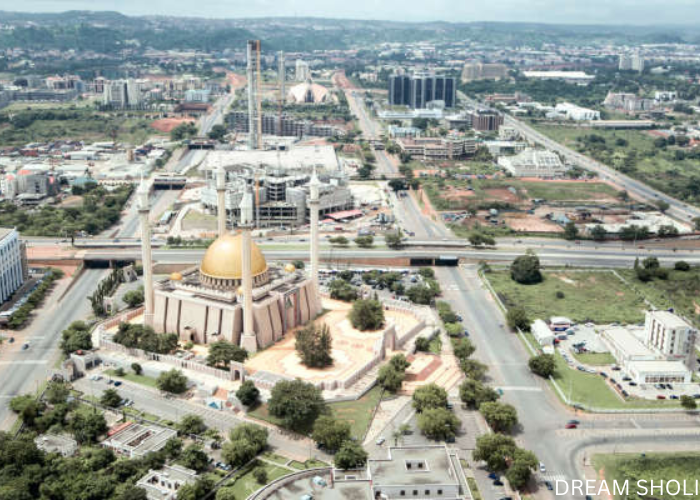
The continent’s most populous country and a vibrant tapestry of cultures, languages, and traditions. Known for its rich history and diverse ethnic groups, Nigeria is home to over 200 million people representing more than 250 ethnicities, with the three largest groups being the Hausa, Yoruba, and Igbo. This diversity is reflected in the country’s myriad languages, with English serving as the official language, while indigenous languages such as Hausa, Yoruba, and Igbo are widely spoken. Nigeria is renowned for its cultural heritage, including traditional music, dance, and art, with genres like Afrobeat and Highlife gaining international acclaim. The city serves as a major financial hub in Africa and hosts a diverse array of industries, from fashion and entertainment to technology and manufacturing. Abuja, the capital city, is characterized by its modern architecture and well-planned infrastructure, serving as the political center of the nation. Despite facing challenges such as political instability, economic disparity, and infrastructural issues, Nigeria continues to grow as a cultural and economic powerhouse in Africa, drawing attention from around the globe for its dynamic culture and potential for growth.
The country’s climate can be broadly categorized into three regions: the tropical coastal region in the south, the savanna in the central region, and the arid northern region. The southern region, which includes cities like Lagos and Port Harcourt, has a tropical climate with high humidity and significant rainfall, particularly from April to October. This area experiences two rainy seasons: the long rainy season from March to July and a shorter one from September to October. In contrast, the northern region, encompassing cities like Kano and Sokoto, has a more arid climate, with hot temperatures and minimal rainfall, primarily occurring between June and September. The dry season, known as Harmattan, typically lasts from November to March, bringing dry and dusty winds from the Sahara Desert, which can significantly lower temperatures, especially at night. The central region of Nigeria has a more moderate climate, with seasonal variations in temperature and rainfall. Overall, Nigeria’s weather varies significantly from region to region, influencing the agricultural patterns, lifestyle, and cultural practices of its diverse population.

Nigeria boasts a rich and diverse culinary landscape that reflects its multicultural heritage, with over 250 ethnic groups each contributing unique flavors and traditions. Nigerian cuisine is characterized by its use of bold spices and ingredients, resulting in vibrant and hearty dishes. Staples include rice, yams, cassava, and beans, often paired with rich sauces and stews made from ingredients like tomatoes, peppers, and palm oil. Popular dishes include jollof rice, a one-pot dish renowned for its spicy flavor; pounded yam served with egusi soup (made from ground melon seeds); and suya, a spicy skewered meat delicacy typically sold by street vendors.
The country’s culture is equally vibrant, encompassing traditional music, dance, and art that vary from region to region. Festivals play a significant role in Nigerian culture, showcasing the country’s rich heritage through colorful parades, traditional dances, and music. Events like the Osun-Osogbo Festival, the Durbar Festival, and the Lagos Carnival highlight the diverse cultural practices and communal spirit found across the nation. Additionally, Nigeria is known for its rich storytelling traditions, conveyed through oral histories and contemporary literature, which often reflect the complexities of life in the country. The blend of traditional and modern influences in food and culture demonstrates Nigeria’s dynamic identity and its people’s resilience and creativity.


As the commercial capital of Nigeria, Lagos plays a pivotal role in the country’s economy, hosting numerous multinational corporations, banks, and financial institutions. The city is characterized by its lively atmosphere, with a blend of modern skyscrapers, historic neighborhoods, and sprawling markets that reflect the rich cultural heritage of its diverse population. The city is a major center for music, particularly Afrobeats, and has produced numerous internationally recognized artists. Cultural institutions, such as the National Museum and the Nike Art Gallery, showcase Nigeria’s rich history and artistic heritage. The city is also famous for its street food, offering a wide array of delicious local dishes, including jollof rice, suya (spicy grilled meat), and puff-puff (sweet fried dough). Murtala Muhammed International Airport serves as the main gateway to Nigeria, facilitating a significant volume of both domestic and international flights. As the busiest airport in the country, it connects Lagos to major cities across Africa, Europe, Asia, and the Americas, making it a crucial hub for travelers. The airport’s extensive network enables easy access to Lagos and the surrounding region, supporting its role as a key entry point for business, tourism, and trade in Africa.


A planned metropolis known for its modern architecture, greenery, and strategic location at the center of the country. Designated as the capital in 1991, Abuja was chosen for its neutrality and accessibility, making it a hub for political, economic, and diplomatic activities. The city is characterized by wide boulevards, spacious parks, and impressive landmarks, such as the Nigerian National Mosque, the Nigerian National Church, and the Aso Rock, a prominent geological feature that serves as a backdrop to the presidential complex. This cosmopolitan city is home to a diverse population, with people from different ethnic backgrounds and cultures, contributing to a vibrant cultural scene. The city hosts numerous events, festivals, and exhibitions that celebrate Nigeria’s rich heritage and promote cultural exchange. Nnamdi Azikiwe International Airport serves as the main gateway for travelers to and from Abuja, connecting the capital to major cities across Nigeria and various international destinations. The airport plays a crucial role in facilitating government, business, and diplomatic travel, as it is frequented by officials and expatriates alike.
Port Harcourt, located in the southern part of Nigeria, is the capital of Rivers State and a significant center for the country’s oil and gas industry. Known as the “Garden City” due to its lush vegetation and numerous parks, Port Harcourt is a vibrant city that plays a crucial role in Nigeria’s economy. The city’s rich cultural heritage is reflected in its diverse population and traditions, which encompass various ethnic groups, languages, and customs. The city features several attractions, including the Port Harcourt Tourist Beach, which provides a scenic spot for relaxation and leisure activities, and the National Museum, showcasing the region’s history and artifacts. The bustling markets and lively nightlife contribute to the city’s dynamic atmosphere, making it a popular destination for both business travelers and tourists. The Port Harcourt International Airport enhances the city’s connectivity by offering numerous domestic flights and international connections, particularly to major oil and gas industry centers around the world. The airport is crucial for facilitating business travel and supporting the region’s economy, as it serves as a key gateway for expatriates and professionals working in the oil sector.


Explore the world effortlessly with our tailored travel packages. Let us handle the details while you create unforgettable memories.
Copyright 2024 Dream Sholi